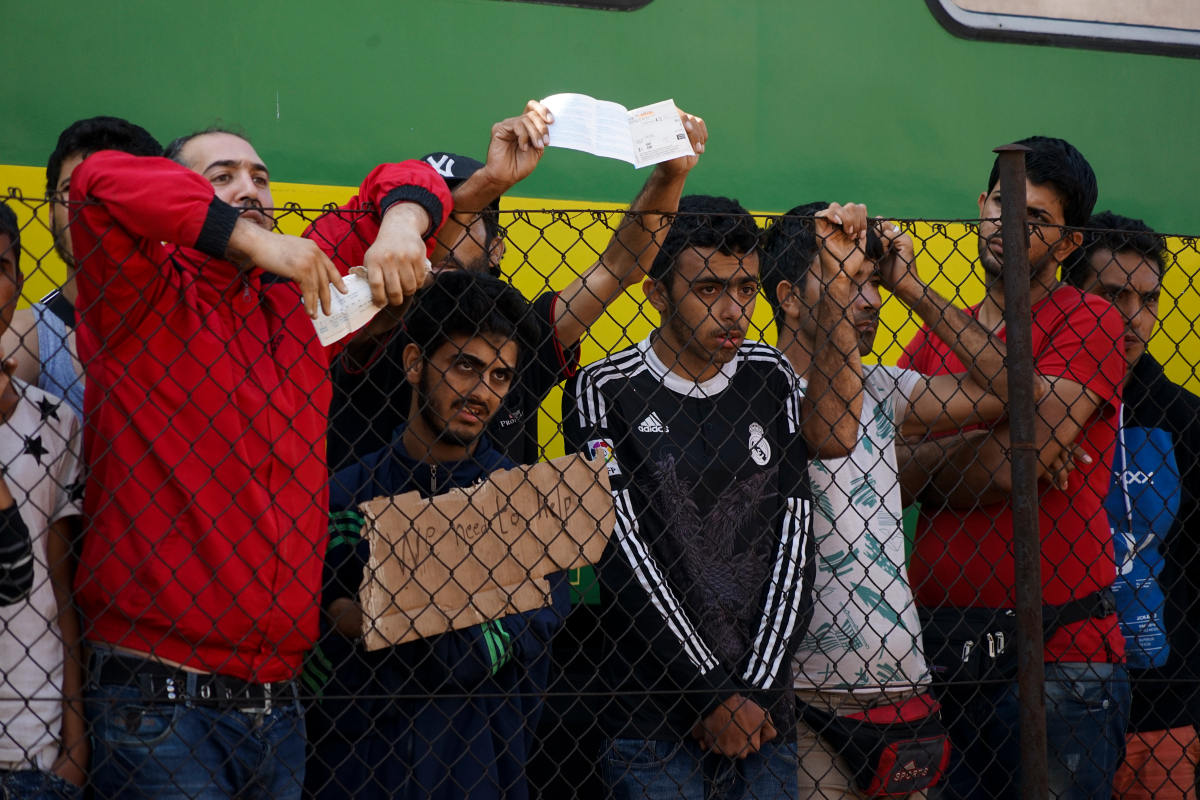BELGRADE, Serbia (ViaNews) – For the purposes of this report, we’re going to analyse the statements of Serbian officials regarding migrants. The observed period spans from 18 July to 18 August 2016, in the heat of the Balkan route migrant crisis.
This was not the predominant topic back then, despite the burning issue. The new government was only formed on August 7 and the speculation on the future composition of the Government largely dominated the media scene.
In the analysis of political attitudes of Serbian officials towards migrants, one should bear in mind the somewhat broader context. On 18 July Serbia has opened negotiation chapters 23 and 24 and thus made a step further towards the European path. It should be noted that compliance with EU policy requires reform in the field of asylum and migration, although among the attitudes of political leaders one may notice a couple of sharper statements that do not show a complete understanding of the necessary reforms.
On July 17, a decision was made on the formation of police and military forces to execute common tasks. Primarily to prevent the illegal entry of migrants from the Bulgaria and Macedonia directions and bring to justice human trafficking in the territory of the Republic of Serbia. After the formation of these forces, the communique of the Ministry of Interior and Ministry of Defense is dominated by a reduced number of statements about the influx of migrants and smugglers detained. Even though the statements the Ministry of the Interior observed privately were dominated by themes of domestic violence, due to the increased number of cases, it seems that the migrant crisis somehow remained in the background. In the reporting period, there was almost no declaration on migrants at the highest political level.
Part of the reasoning lies in the constant oscillation of relations in the region, especially Croatia, with which over the past month Serbia has led the diplomatic war. Greater required support from the European Union managing the migration crisis can be related to the uncertainty relations and agreements between Brussels and Ankara, including the instability in Turkey, sparked by a coup attempt on July 15.
“Belgrade wants to cooperate in the migrant crisis,” Serbian President Vucic said after a meeting with Austrian Chancellor Kern on 12 August, during the visit of the Austrian Prime Minister. He added that Serbia will continue to “work in good faith, in cooperation with the Austrian government,” and will accept any kind of support and help. Speaking of the migrant crisis, Prime Minister pointed out that Serbia will try to deal more effectively with the immigrant wave and added that the country is always ready to listen to the Austrian partners.
Minister Kurz in Vienna met Serbian Foreign Minister Ivica Dacic, saying he expects that Austria will continue to support Serbia’s European integration and will contribute to calming tensions in the region. After the visit, a statement on the website of the Ministry of Foreign Affairs contains a little sharper message from the head of Serbian diplomacy, Ivica Dacic. He pointed out that when it comes to the migrant crisis, “Serbia wants to follow a European response to this question, but it is also said that you cannot afford to be in some way a victim of the lack of a unified European policy.” Dacic is prone to collecting political points via sharper rhetoric, particularly recently when there are more and more appearances of his negative attitudes towards the policy of the European Union.
From Nebojša Stefanović, the Minister of Interior, arrived much more moderate statements, after meeting with its Greek counterpart. He claimed that “none of the countries is to blame for the migrant crisis and that it is necessary to establish a normal mechanism of readmission.” Immediately before and after the formation of joint teams of the army and police, Stefanović sent a clear signal that Serbia wants to prevent illegal crossings. He said that the government will try to reduce the number of illegal migrants to a minimum and that it will continue to behave humanely.
Something less appropriate statements came from the Minister of Labour, Employment and Social Affairs, Aleksandar Vulin, which is not too surprising and unexpected when it comes to his rhetoric. “Serbia cannot solve this problem and cannot be held responsible for the actions of other people’s government.” On the occasion of the hunger strike of migrants, Vulin said that migrants can protest “as long as you comply with the law”, adding that Serbia would not use force as long as the migrants on strike were “peaceful.” This was followed by a sharp criticism of the EU claiming that Serbia cannot pay because the EU is not able to find a unique solution.
Secretary of State ministries of labor stated that the Serbian authorities and the international community wants to show that the Balkan route is not closed; that these people have not fallen from the sky, and wanted to speak to them so to bring them into the legal channels; and expects continued financial assistance from Europe. On the other hand, Ministry of defense spokesman, Jovan Krivokapic, pointed out that from July 22, when the joint police and military forces were deployed, there was a reduction on the influx of migrants, but it is “impossible to hermetically seal the border. Only the presence of the army and police patrols discourages migrants, and makes them seek alternative, impassable roads.” Krivokapic said that due to these Army units and MUP forced to constantly changing tactics of border security.”
From the other angle of the story, there were no press statements claiming that Serbia is not threatened by migrant crisis and that it contains primarily economic migrants who want to move across to the EU. On the other hand, the UNHCR warns about the further deterioration of the migrant situation in Serbia, which was hardly transmitted by the mainstream media.
In sum, it leaves the impression that, as an EU candidate country, Serbia was only ‘handling’ the migrant crisis for political points in Brussels.







